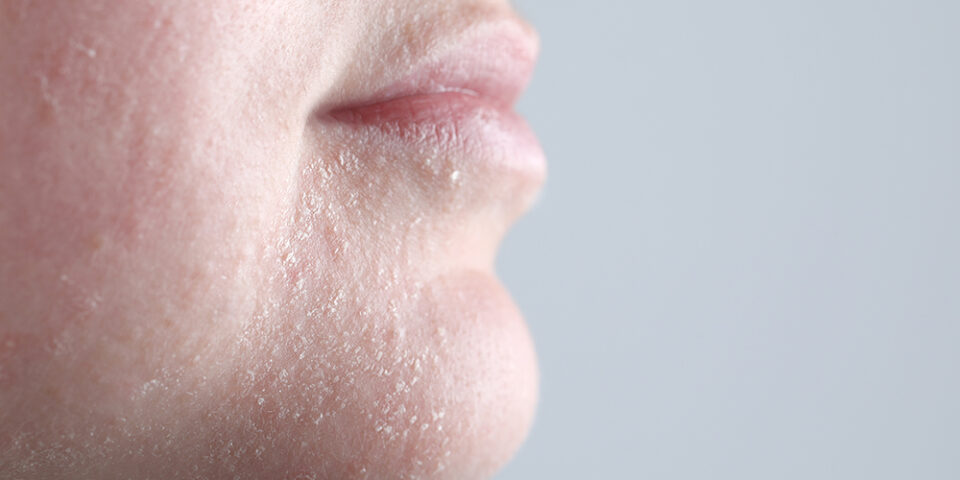How can cancer treatment impact your skin?
Cancer is life-altering, from the moment of diagnosis through your treatment journey and beyond. Treatment for cancer, which may include surgery, chemotherapy, hormone therapy, radiation therapy or a combination of all of the above, takes a physical, mental and emotional toll. Cancer treatment can impact your appearance, and one common question asked by those facing cancer treatment is how cancer treatments impact your skin.
Emily Vanhoose, an oncology certified aesthetician, answered common questions about the way cancer treatments impact skin, hair, nails and more.
What is an oncology certified aesthetician?
“As an oncology certified aesthetician, I’m trained to take into account factors like whether or not someone has had lymph nodes removed, the specific impacts of chemotherapy or radiation on the skin, whether or not steroids are part of someone’s cancer treatment and to adjust and adapt around the presence of ports or active radiation treatment areas,” said Vanhoose.
An aesthetician who focuses on oncology patients conducts a thorough assessment of the challenges each individual patient may be facing. This might involve discussing the patient’s specific diagnosis, what previous treatments they may have had and working out any potential challenges in skin or hair care.
“Every patient is unique,” said Vanhoose. “Every patient’s needs will be different, not just based on their diagnosis but also their specific treatment regimen and the circumstances of their life. I’m trained in specialized techniques and therapeutic approaches that help to soothe discomfort, promote a sense of well-being and help rebuild and strengthen self-esteem.”
How can cancer treatment impact your skin and nails?
As the body’s single largest organ and the most visible one, changes to skin that happen as a result of cancer treatment can feel especially noticeable and nerve-wracking. Many patients face dry, sensitive and irritated skin, as well as changes to skin color.
Changes to fingernails and toenails are also common, including nails yellowing or becoming brittle, splitting or cracking in ways that are uncomfortable or even painful.
Is it safe to schedule skin or nail services at a spa while undergoing cancer treatment?
“I always advise patients going through cancer treatment to bring up any skin or nail concerns with their physician,” said Vanhoose.
Vanhoose noted that oncology trained aestheticians and manicurists follow strict sanitation guidelines that a regular spa or nail care place may not. Oncology trained aestheticians also are educated in the best products to safely use on compromised skin and reduce any potential side effects.
Tips for skin care during cancer treatment
“My top piece of advice is to keep your skin healthy and do what you can to prevent any skin infections,” said Vanhoose. “Also, keep your skincare routine simple, and focus on using gentle, hydrating products to help with dryness and fragility.”
Tips for nail care during cancer treatment
Vanhoose recommended keeping your hands clean, moisturizing your nails and cuticles regularly and minimizing your exposure to chemicals that dry out the skin or irritate it.
Toluene and acetone, common chemicals used in nail care, should be avoided if possible. If not, lessen your use of those chemicals as much as possible.
Are there any skin care or hair care products to avoid during cancer treatment?
“I don’t recommend focusing on products, but on ingredients,” said Vanhoose. “Common ingredients in skincare or hair care products that could cause bad reactions include parabens, fragrances and alcohol.”
Parabens are preservative chemicals that imitate estrogen and can be easily absorbed into the skin. Fragrances are often allergens or can be considered endocrine disruptors. Skincare products with alcohol can dry out your skin or cause irritation.
Will dry skin and other symptoms go away once cancer treatment ends?
“The changes you see to your skin and nails during cancer treatment generally aren’t permanent,” said Vanhoose. “Once treatment finishes, any changes to the nails should disappear as the nails grow out. Skin can be a little more complicated, but speaking with your physician and an oncology trained aesthetician about your concerns can help you find a way to help with discomfort.”
Find a doctor
Whether you’re looking for a primary care physician or need to see a specialist, we’re here to help with experienced, compassionate care near you.
Find a Doctor

